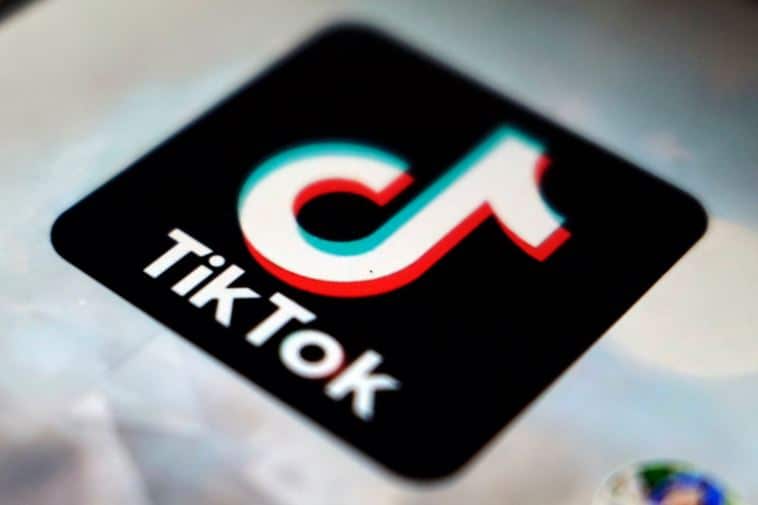TikTok CEO Grilled Over Chinese Influence in US Through App

WASHINGTON — The chief executive of social media app and website TikTok endured five hours of withering accusations in Congress Thursday that his company acted as the alter ego of the Chinese government and failed to protect children from harmful video content.
Several times the lawmakers accused Shou Chew of lying when he said TikTok did not share data with the Chinese Communist Party.
“We aren’t buying it,” Rep. Cathy McMorris Rodgers, R-Wash., chairwoman of the House Energy and Commerce Committee, said about TikTok’s claims of no Chinese government influence. “We also know that many of your employees report directly to Beijing.”
TikTok is owned by ByteDance, a Chinese internet technology company headquartered in Beijing.
Lawmakers in the United States, Australia and other countries have said they have evidence ByteDance uses its affiliations with TikTok for surveillance of foreign populations. ByteDance also is accused of censoring content on its platforms that could demonstrate Chinese human rights abuses.
The Biden administration recently told TikTok it wanted the app’s Chinese owners to sell their stakes or face being banned in the United States. The plan might have been halted Thursday when the Chinese government said it would oppose a sale.
ByteDance employees are subject to China’s National Intelligence Law and Cybersecurity Law that require them to share information with their government on demand under penalty of criminal prosecution.
Chew told the Energy and Commerce Committee TikTok operates as a private company headquartered in Singapore and Los Angeles, California, which absolved it of duties to share information with the Chinese Communist Party.
Rodgers and other lawmakers on her committee expressed much different opinions.
“ByteDance and TikTok are one and the same,” Rodgers said.
She added, “TikTok is a grave threat of foreign influence in the United States.”
While telling Chew that lying to Congress is a federal crime, she said, “You told us you were not spying on U.S. journalists. You were.”
In a rare showing of bipartisan unity, the committee’s 29 Republicans and 23 Democrats joined in the criticisms.
“Today the American people are powerless to stop this invasion of their privacy,” said Rep. Frank Pallone, D-N.J.
TikTok has more than 150 million users in the United States. About two-thirds of American teenagers say they use the service, according to the nonprofit Pew Research Center.
“Children and teens are particularly vulnerable,” Pallone said.
He was referring to TikTok’s predictive algorithms that direct users to videos reflecting their personal interests. Pallone called the algorithms “addictive” for the way teens and children sometimes report having difficulty abstaining from TikTok.
Some of them are driven to depression by videos that he described as disturbing.
Chew, 40, who was appointed as TikTok’s chief executive officer two years ago, said he was aware of occasional problematic content that users posted but was trying to prevent it.
“We spent a lot of time developing software to protect teenagers,” Chew said. “We want TikTok to be a place where teenagers can come to learn.”
The company operates with about 7,000 American employees. Worldwide it has about 2 billion users.
He drew the sharpest scorn from lawmakers with his denials of Chinese influence.
“ByteDance is not owned or controlled by the Chinese government,” he said. “It’s a private company.”
In a response intended to reassure Americans, Chew said TikTok was developing “Project Texas,” a program that would store all U.S. data on servers in the United States and protect it from being tapped by foreign governments with software firewalls.
“We are committed to be[ing] very transparent to users about the data we collect,” Chew said.
Rep. Michael Burgess, R-Texas, read from a Wall Street Journal article quoting Chinese government officials saying they would not allow a sale of TikTok, then added, “China certainly thinks it’s in control of TikTok and its software.”
Rep. Richard Hudson, R-N.C., said, “TikTok has been operating as a vast surveillance network,” which has included monitoring U.S. military personnel.
Among pending congressional proposals to rein in TikTok is the RESTRICT Act, which would authorize the Commerce Department to vet and potentially ban any app or service that endangers U.S. security.
A second bill, the ANTI-SOCIAL CCP Act, would order the president to ban TikTok under his emergency economic powers.
Both bills have bipartisan support.
You can reach us at [email protected] and follow us on Facebook and Twitter























